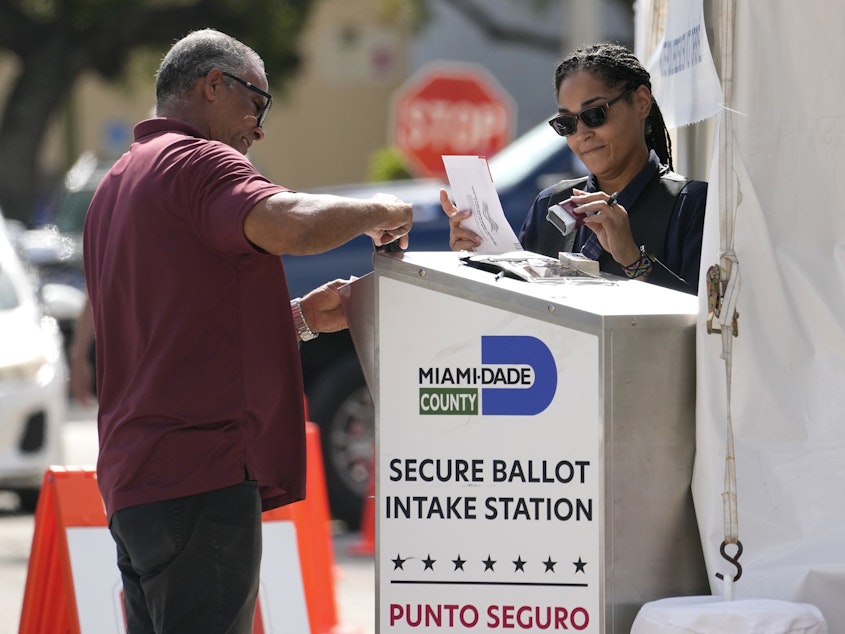Voter turnout for the 2022 midterm elections was the 2nd highest since 2000

With 52.2% of adult U.S. citizens casting ballots, voter turnout for last year's elections was the second highest for a midterms since 2000, according to estimates the Census Bureau released Tuesday.
The 2018 midterms — the first major national contests after former President Donald Trump's election — saw slightly higher turnout than last year's races.
The 2022 midterm elections also saw a continuing shift toward early and mail-in voting since the COVID-19 pandemic, as 49.8% of voters opted out of the more traditional way of casting their ballots in person on the last day of voting.
The estimates come from the bureau's Current Population Survey, which checked in with about 50,000 households in November 2022 after voting for last year's midterm elections ended.
Other key findings about the 2022 midterm elections include:
The rate of voter registration — at 69.1% of U.S. citizens age 18 and older — was the highest for a midterm race in at least the last two decades.
More registered nonvoters reported that they "forgot to vote" in last year's elections than in the 2018 midterms (up 2.2 percentage points). Still, the most common reason for not casting a ballot last year was "Too busy, conflicting work or school schedule" (26.5% of registered nonvoters), followed by "Not interested, felt my vote wouldn't make a difference" (17.6%) and "Illness or disability" (12.5%).
Among racial and ethnic groups, Asian American voters were most likely to vote early or by mail, while Black voters were the least likely. Black voters notably had the lowest rate of voting by mail out of all the groups, at 20.7%.
An earlier round of surveying by the bureau previously found that 2020 saw the highest voter turnout of this century, with 66.8% of adult U.S. citizens casting ballots in that presidential election year, despite the hurdles brought on by the early months of the pandemic. COVID led many states and local communities to increase access to mail and early voting.
Edited by Benjamin Swasey [Copyright 2023 NPR]



